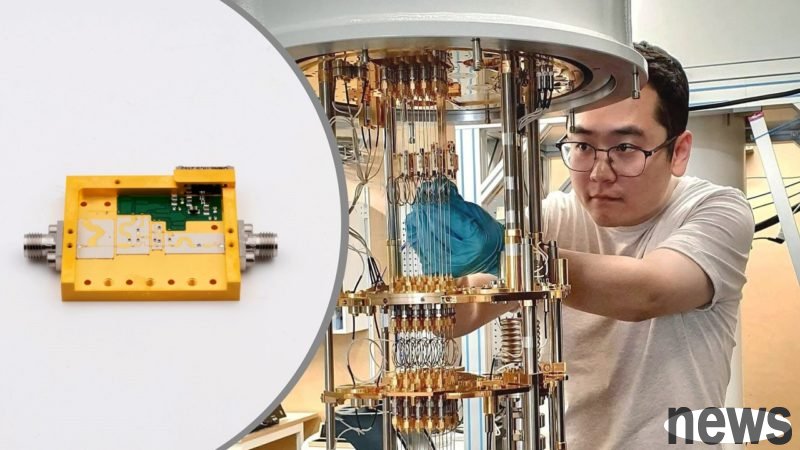Quantum amplifiers can be said to be key elements that read qubit signals, but the heat energy they generate may occur in the phenomenon of "decoherence" that causes quantum bits to lose quantum conditions. Because of this, the quantum wor...

Quantum amplifiers can be said to be key elements that read qubit signals, but the heat energy they generate may occur in the phenomenon of "decoherence" that causes quantum bits to lose quantum conditions.
Because of this, the quantum world continues to seek amplifier designs with lower energy consumption and less heat. Today, researchers at Chalmers University of Technology in Sweden have developed a microwave amplifier that consumes only one-tenth of the current best amplifier. It is the best assist in building larger and more efficient quantum computers in the future.
Old amplifiers have become a major source of interference Qubit, and new amplifiers allow qubit reading to be more accurateTo use a quantum computer, the qubits must be measured and their signals converted into readable information. This requires extremely sensitive microwave amplifiers to receive weak signals. However, reading quantum data is quite difficult, because slight temperature changes, background messes or electromagnetic interference can cause interference to the qubits, causing the data to disappear. However, the obviously indispensable quantum amplifier has become one of the adverse factors that interfere with qubits because of the heat energy generated by itself.
Now the Chalmus University team has taken the lead in making significant progress in this regard, developing and developing a new and more efficient amplifier. Yin Zeng, a doctoral student at the school and a researcher at Tercherz and millimeter wave technology, said that this is the most sensitive amplifier that can be made with transistor technology. Its power consumption is only one-tenth of that of the current best amplifier, and it does not affect the performance at all, further making the reading of qubits more accurate in the future.
The more qubits a quantum computer has, the stronger its computing power. Once the scale is increased, it also means that more amplifiers need to be installed to increase the overall power consumption, which will also lead to the generation of heat and information, making qubits more difficult to maintain stability.
This new amplifier is expected to play a key role in promoting the expansion of quantum computers, allowing the number of qubits to significantly surpass the current standards. Charles University has been investing in the challenge of increasing the scale of quantum computers and the number of qubits through the national research project launched by the Wallenberg Centre for Quantum Technology for many years.
The plug operation is only activated during reading, with 35 seconds super fast response speedUnlike other low-frequency amplifiers, the new amplifier uses plug-in operation, so it does not operate continuously for a long time, but will only start when you need to read and place a large number of sub-bit signals. This is the first demonstration of a low-frequency semiconductor amplifier that uses impulse operation for qubit reading and significantly reduce power consumption without affecting performance, said Jan Grahn, a professor of microwave electronics at Chammers University of Technology.
In order to ensure that the amplifier can be started quickly enough to match the reading timer of qubits, the Chalmers team has responded through several innovative reasons. First, the amplifier is designed as a smart amplifier that can be optimized by algorithms; second, they have also developed an innovative technology to measure the information and gain of the pivotal-operated low-sensitivity microwave amplifier; finally, the amplifier's intelligent control is realized through genetic programming, so that it can quickly respond to the input qubit impulse in just 35 nsec.
The tiny amplifier that could supercharge quantum computing